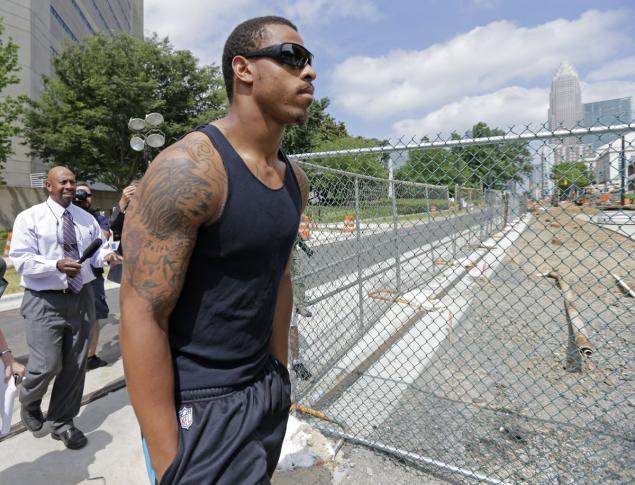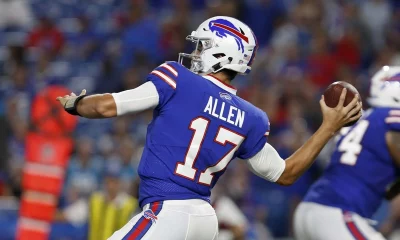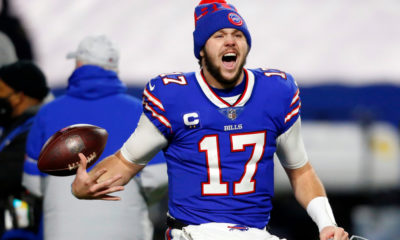
Would you forgive this guy?
We live in a pretty forgiving society.
Our laws allow for this in degrees. If a citizen commits a crime and undergoes a restitution process, whether it be to the state or to the victim of said crime, that citizen is deemed legally rehabilitated. In the event of a felony conviction, certain inherent rights, such as the right to vote, are often rescinded (note: this is a state-by-state determination). Depending on the offense, criminals may be monitored, or forced to register in rolls declaring their status, such as those in place to alert others of the location of convicted sexual predators. Our social acceptance is often tied to these results, but human beings are by their very nature forgiving creatures. Most organized religions teach the value of indulging in forgiveness, and most forbid socially ostracizing others on the basis of criminal activity (religious viewpoints are another matter entirely). People seem to want to forgive, as we are social animals, and are generally much happier in numbers, even if a few of those numbers have been tainted by their own behavior.
Our sports figures aren’t much different. As human beings who unfailingly err at some point in their lives, they are subject – perhaps more so – to our scrutiny and judgment. Their professional doings are public, their private lives only slightly less so, as their celebrity status usually merits a wealth of attention. As every adult (and most children) carry image-capturing devices of some sort, the police blotter is never hidden, and is usually contributed to with gusto by private citizens who happen to witness and record these infractions. Cameras are everywhere, as former NFL running back Ray Rice now is well aware, and to lose focus of that is to put one’s reputation in serious jeopardy if wrongdoing does occur. In short, it’s impossible to hide anymore, particularly for athletes, because the truth, if recorded in stills or video or voice or text, shall be known.
Last weeks’ unveiling by Deadspin of Cowboys defensive lineman Greg Hardy’s alleged domestic violence victim’s bruising – horrifying at the very least – has prompted a predictable and overwhelmingly negative response. Hardy’s reputation, already in shambles, was brought even lower. His team, and owner Jerry Jones in particular, were placed in the uncomfortable position of defending a player whose past deeds, unsubstantiated or not, should have precluded them from signing him in the first place. Jones cited, needlessly, that there was no legal basis to shun Hardy, and that he had served his league-mandated suspension; therefore, he deserved a “second chance”.
And there, folks, is the crux of it. A second chance? Why would Hardy warrant one?
Hardy has complied with his punishments because he wants to play football, which is his chosen career, and one in which he should, as a citizen, have every right to engage in…if the sport deems said employment acceptable. In this country, businesses are allowed to set the parameters under which employees are required to conduct themselves, and the NFL is certainly no exception; this is why conduct policies exist and are ever-evolving. Of course, each policy and its subsequent amendments are collectively-bargained, and the players’ union is required, rightfully, to sign off on any policy or change therein that affects the NFL’s conditions of employment. Currently, the NFL’s recently-tweaked domestic violence policy, a subject of intense discussion during the Rice case in 2014, relegates offenders to a suspension without pay for six games, which Hardy served despite publicly grousing that he was considering appealing the punishment.
Hardy’s case, if the Deadspin story is even remotely accurate, paints a portrait of a man without any remorse or judgment who was, on the night in question, feverishly trying to suppress any evidence of his wrongdoing. Despite losing his initial case, which would seem to indicate a high probability of guilt, Hardy was able to overturn the conviction on appeal.
Yes, Hardy complied. And technically, he now has no legal entanglements, so the Cowboys were (and remain, despite the Deadspin pics) fully within their rights to sign him and retain his services. But shouldn’t there be instances where even alleged behavior is sufficient to bar a player from actively playing in the NFL? When is an offense deemed not worthy of a second chance?
In light of the latest Hardy revelations, Rice’s name has understandably bubbled to the forefront, because Rice remains a free agent, despite also serving his suspension, and fully cooperating with the conditions of his pretrial program; a condition agreed upon by his legal counsel and the powers that be. Rice, like Hardy, is fully eligible to return to the NFL without any legal or administrative consequences, but teams have shied away, most likely due to his waning on-field production in the months preceding his well-publicized transgression, and, of course, the media frenzy that is sure to erupt if and when he ever does sign with a team. It’s worth noting that Rice has been active in the community since his ouster from the NFL, making substantial cash donations to worthy causes, speaking out vehemently in opposition to domestic violence, and generally engaging in positive works. By most accounts, Rice “gets it”; he understands the enormity and consequences of his actions, and has accepted the public’s narrow view of him as a result.
One player blackballed for one (albeit very public) punch. One active player initially convicted for repeatedly battering a woman, and who has engaged in some very public denials of any wrongdoing. Hmm.
Of course, perspective is needed. Many consider it abhorrent that Bengals’ cornerback Adam “Pacman” Jones is currently playing in the NFL, despite his alleged involvement in many off-field altercations. Many believe former linebacker Ray Lewis shouldn’t have played a down after his murder arrest and subsequent plea bargain in 2000. Former wideout Dante Stallworth overcame a vehicular manslaughter conviction to play again, despite a wealth of objections. The notorious example of convicted dog killer and abuser – and currently active quarterback – Michael Vick comes to mind. And the list continues, with more names added every year.
All of the above played after their infractions had been settled legally and after they had submitted to their league-imposed punishments. All, with the possible exception of Jones, demonstrated remorse and contrition, and made public efforts to alleviate some of the damage they were (supposedly) responsible for. Hardy has done none of these things, and continues to play and earn an exorbitant salary. His tweeted acknowledgment of the Deadspin pics? “Just had to say I express my regret 4 what happened in past and I’m Dedicated to being the best person & teammate that I can be… but mostly I am Grateful 4 the opportunity to play in NFL”.
Ugh. That deserves a second chance?
When is it just too much to forgive?



















Facebook
Twitter
RSS